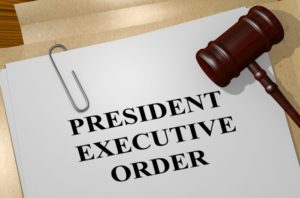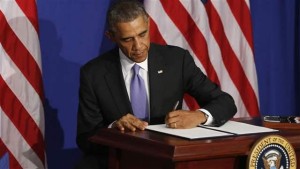Hold on, Mr. President!
You used to excoriate your immediate predecessor, falsely, for over-using his executive order authority. Now you are considering a notion to issue an order to stop birthright citizenship to everyone who is born within the United States of America?
I do not believe you can do that, Mr. President. Your White House legal team is giving you bad advice. I feel confident saying such a thing even though I am no lawyer, nor do I purport to know “the best words” or surround myself with “the best people.”
I understand that you just don’t want all them “illegal aliens” giving birth in this country to babies who become immediate U.S. citizens. You want citizenship only for those who “merit” it.
Let’s take a quick look — shall we? — at the 14th Amendment to the U.S. Constitution. Section 1 says it clearly: “All persons born or naturalized in the United States, and subject to the jurisdiction thereof, are citizens of the United States and the State wherein they reside.”
The amendment was proposed in Congress on June 13, 1866, a little more than a year after the Civil War.
Constitutional scholars say the amendment was a result of efforts granting full citizenship to African-Americans who only three years earlier were “emancipated” from their enslavement by President Lincoln.
Still, it’s written in the Constitution, that everyone born in this country is granted immediate citizenship upon birth.
Thus, I just don’t believe, Mr. President, that you can circumvent the Constitution with the kind of executive order you said was abused by former presidents.
If you do, sir, my sincere hope is that someone challenges it immediately and that it finds its way to the U.S. Supreme Court. If the conservative majority on the court — which has been buttressed by the recent confirmation of Justice Brett Kavanaugh — stands by the document y’all have pledged to protect and defend, they’ll join their liberal colleagues in shutting down this unconstitutional effort.
This executive authority notion, Mr. President, is un-American.



